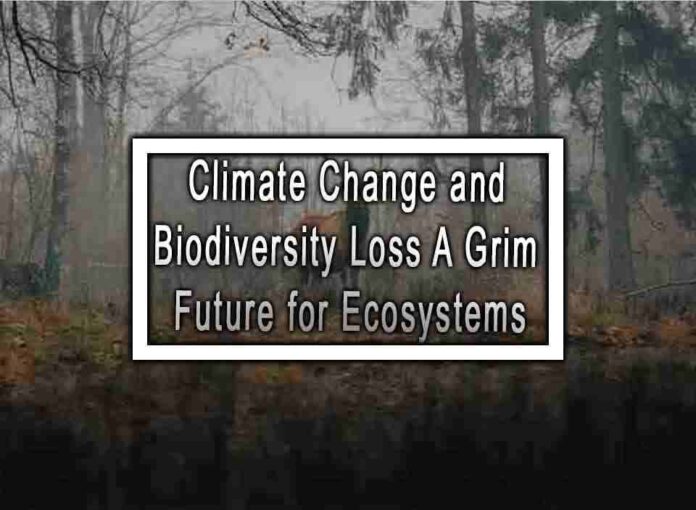Indeed, climate change and biodiversity loss pose a grim future for ecosystems and the planet as a whole. These two interconnected crises are among the most pressing environmental challenges humanity faces, with far-reaching consequences for both natural systems and human well-being. Here’s how climate change and biodiversity loss are interlinked and how they collectively threaten ecosystems:
1. Climate Change and Biodiversity Loss Connection:
– Climate change exacerbates biodiversity loss and vice versa. Rising temperatures, altered precipitation patterns, and extreme weather events can disrupt ecosystems, making it difficult for many species to survive.
– Biodiversity loss reduces the resilience of ecosystems to climate change impacts. Diverse ecosystems are better equipped to adapt to changing conditions, while monocultures or simplified ecosystems are more vulnerable.

2. Impact of Climate Change on Ecosystems:
– Altered Habitats: Changing temperatures and precipitation patterns can lead to shifts in ecosystems and habitats, forcing species to migrate or adapt. Species that are unable to move or adapt may face extinction.
– Coral Bleaching: Rising ocean temperatures cause coral bleaching, where corals expel their symbiotic algae, leading to mass coral mortality and the loss of vital marine habitats.
3. Impact of Biodiversity Loss on Ecosystems:
– Disruption of Food Chains: Biodiversity loss can disrupt food chains and webs, affecting predator-prey relationships and leading to imbalances in ecosystems.
– Pollination and Agriculture: Many plants rely on specific pollinators for reproduction. The decline of pollinator species due to biodiversity loss can affect agricultural productivity and food security.
4. Feedback Loops:
– Climate change and biodiversity loss can create feedback loops that amplify their impacts. For example, melting permafrost releases stored carbon, contributing to further warming, while loss of biodiversity can reduce carbon storage capacity in ecosystems.
5. Ecosystem Services:
– Both climate change and biodiversity loss threaten the ecosystem services that humans rely on, such as clean water, air purification, carbon sequestration, and disease regulation. These services underpin human well-being and economic activities.
6. Displacement and Conflict:
– As ecosystems become less habitable due to climate change and biodiversity loss, human populations may be forced to migrate, leading to potential conflicts over resources and increased pressure on already stressed areas.
The challenges posed by climate change and biodiversity loss are complex and multifaceted. Addressing these issues requires a holistic approach that recognizes the intricate connections between ecosystems, species, and the health of our planet.











